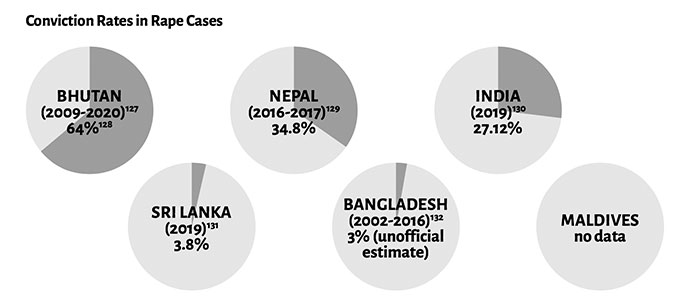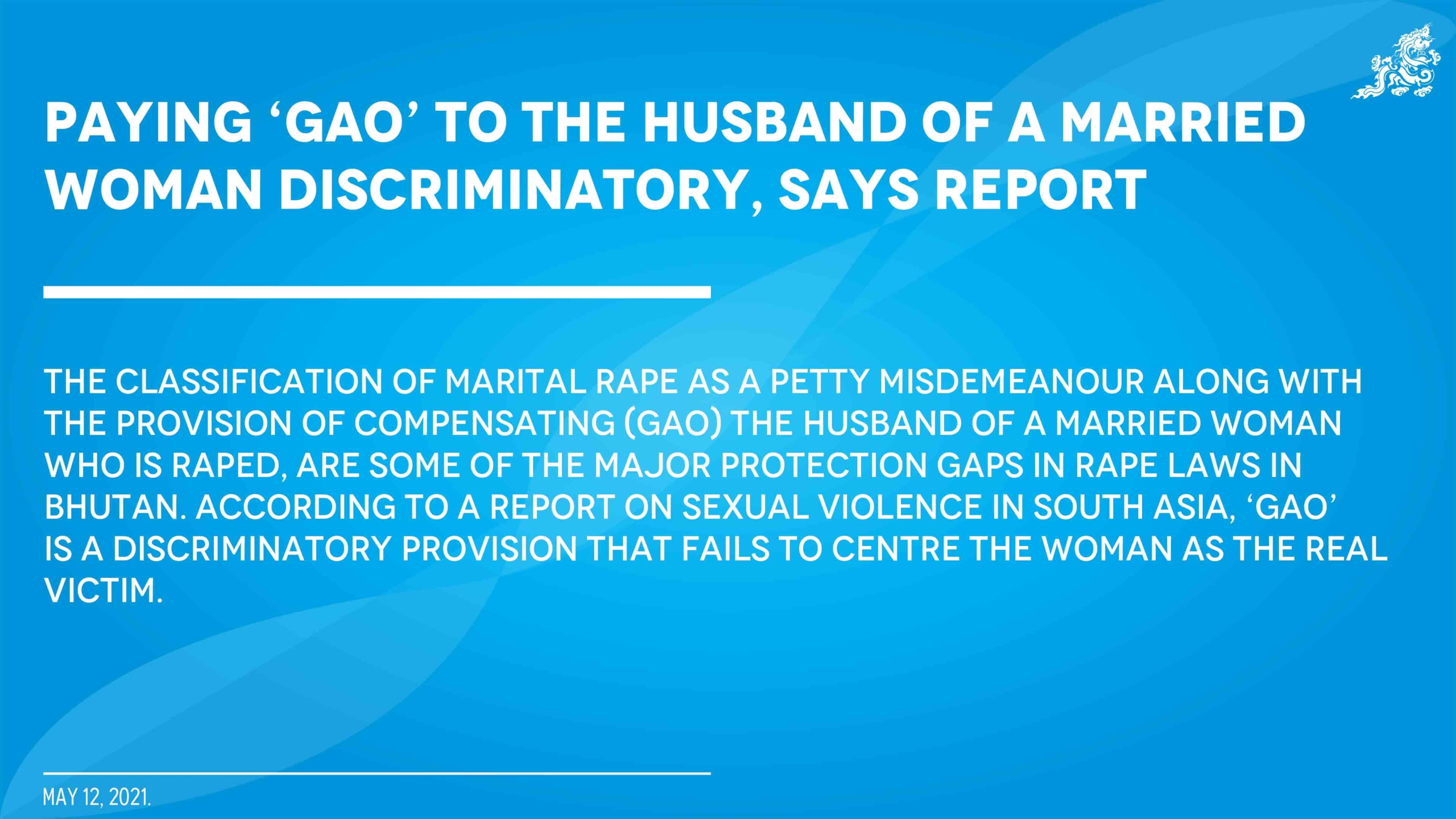Yangchen C Rinzin
Paying compensation (gao) to the husband of a married woman, who is raped, is a discriminatory provision, according to a report on “Sexual Violence in South Asia: Legal and Other Barriers to Justice for Survivors.”
The report stated that the provision treats women as the property of the husband. “This fails to centre the woman as the real victim, to understand and treat the crime from her perspective and to deliver full justice.”
The classification of marital rape as a petty misdemeanour, with far lower penalties than those applicable for rape, along with the provision of providing ‘gao’ to the husband in cases where a married woman is raped are some of the major protections gaps in rape laws in Bhutan.

The report focuses on rape laws and implementation in six South Asian countries – Bangladesh, Bhutan, Nepal, Maldives, India and Sri Lanka.
It also stated only Bhutan and Nepal recognise marital rape as a criminal offence in all circumstances despite its alarming prevalence in the region.
The report stated that through interviews with survivors of sexual violence and stakeholders, it was found that survivors of sexual violence face many obstacles in accessing justice.
Some of the obstacles are social stigma and prevailing public attitudes towards sexual violence, which contributes to low levels of reporting in sexual violence cases, delays in court proceedings, lack of confidence and trust in the court system.
The report analysis has also found that Bhutan and Maldives have also failed to maintain confidentiality by healthcare professionals given small populations, information about the patients are often leaked.
“This has often affected the trustworthiness of healthcare providers in the eyes of survivors,” it stated.
The report also revealed that Bhutan does not have a comprehensive law or scheme for the protection of victims and witnesses. “There are few shelter homes, which are insufficient to provide shelter to victims.”
However, the report stated that it could not obtain data regarding the average length of rape trials in Bhutan although one of the victims expressed in her experience the trial in sexual violence cases takes almost a year.
It was also found that in Bhutan, traditional dispute resolution mechanisms are still resorted to in some sexual and domestic violence where mediators are often biased as shared by the victims.
However, the report stated that Bhutan has the highest conviction rate (64%) in rape cases compared to other South Asia countries.
As per the 2016 assessment supported by UNDP, it identified 14 groups in the country as vulnerable like people who beg, children in conflict with the law, female workers working at Drawings, and persons practising risky sexual behaviour.
Dignity Alliance International (DAI) and Equality Now released the report last month. It was developed in collaboration with different individuals and organisations across South Asia.
Information and researches for Bhutan were obtained from RENEW, represented by their official including interviews from rape survivors, whose details were not disclosed.
DAI is a UK-based charity and Equality Now is an international human rights organisation that works to protect and promote all women and girls worldwide.
Equality Now is calling on South Asian governments to take urgent action to address sexual violence, improve access to justice for survivors, and end impunity for perpetrators.
Sex inequality is a fundamental challenge to development in South Asia, which is home to 860 million women.
Some of the gaps in protecting victims in South Asia countries are long delays in a police investigation, bribery and corruptions, lack of support services for survivors, and a low conviction rate.
The report recommended addressing protection gaps in the law, improve police response to cases of sexual violence, and ensure survivor-friendly medical examinations in rape cases.


